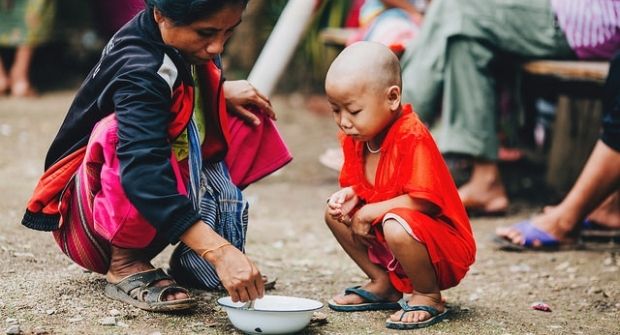
More than three quarters of North Korea's population of 25 million remain "food insecure and highly vulnerable to shocks," said the report compiled by UN agencies in Pyongyang and published today, according to Business Standard.
"An estimated 18 million people are in need of some form of humanitarian assistance," it added.
Malnutrition rates continue to be a public health concern, with significant gaps remaining in nutritional intake, particularly affecting women and children under-five.
Undernutrition is a major underlying cause of "maternal and child mortality and morbidity," said the report.
According to the UN Food and Agricultural Organization (FAO)'s 2015 State of Food Insecurity report, the proportion of people undernourished in the total population was 41.6% in 2014-16, up from 35.5% in 2005-07.
By the end of 2015, the impact of two consecutive drought seasons had "severely affected" crop performance, with production down 11% from the previous year.
"The country continues to suffer from food insecurity as well as limited access to health and water, sanitation and hygiene, resulting in chronic malnutrition and poor health outcomes," the report said.
Production is constrained by insufficient arable land, land degradation due to intensive cultivation, as well as a scarcity of quality seeds, fertilizers and pesticides, the report said.
Read alsoU.N. Security Council condemns North Korea's failed missile testNorth Korea has suffered regular food shortages and hundreds of thousands are believed to have died during a famine in the mid-to-late 1990s.
International food aid, especially from South Korea and the United States, has been drastically cut amid tensions over Pyongyang's nuclear and ballistic missile programs.
"The protracted humanitarian situation (in North Korea) is largely forgotten on the global agenda," the UN report said.

